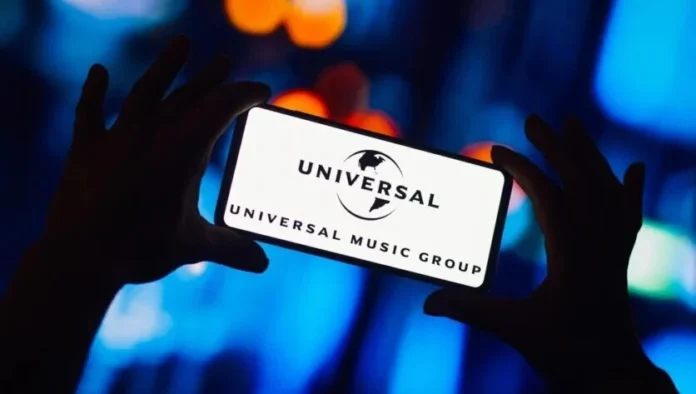The European Commission has temporarily paused its investigation into Universal Music Group‘s proposed acquisition of Downtown Music Holdings.
Reuters reported on Thursday (September 4) that the EC has paused its inquiry ‘while awaiting requested information’.
UMG’s Virgin Music Group revealed in December that it had agreed to buy Downtown Music Holdings LLC in a $775 million deal.
Europe’s competition regulator announced in April that it was preparing to investigate the proposed acquisition and confirmed in July that it had opened an in-depth (Phase 2) inquiry, following an initial Phase 1 investigation.
The EC said in a press release in July that it had “preliminary concerns that the transaction may allow UMG to reduce competition in the wholesale market for the distribution of recorded music in the European Economic Area (EEA) by acquiring commercially sensitive data of its rival record labels”.
Reuters reports that the European Commission ‘stopped the clock’ in the investigation on Tuesday (September 2).
“The ‘clock’ in merger investigations can be suspended if the parties fail to provide, in a timely fashion, an important piece of information that the Commission has requested from them (for its competition assessment) within a prescribed deadline,” Reuters quotes a Commission spokesperson as saying.
The European Commission originally had until November 26 to make a final decision following its Phase II investigation into the deal, but according to the EC website, this date was recently extended by 10 working days, (until December 10).
Reuters reports that a new deadline will be set by the EC ‘once the investigation resumes’.
“We are confident that the Commission will recognize the benefits of the transaction for artists, labels, and independent music in Europe, and clear the transaction.”
Universal Music Group
“We look forward to continuing to work constructively with the Commission to convey the benefits this transaction will bring to the independent music community in Europe,” a UMG spokesperson told MBW on Thursday.
” This deal is about offering independent music makers access to world-class tools and support to help them succeed. We are confident that the Commission will recognize the benefits of the transaction for artists, labels, and independent music in Europe, and clear the transaction.”
According to the EC website, the deadline has been suspended under Article 11(3) of the EU Merger Regulation.
Article 11 of the EU Merger Regulation (Council Regulation 139/2004) deals with requests for information that the European Commission can make during merger investigations. The provision operates on two levels: simple requests under Article 11(2) and formal legal decisions under Article 11(3).
As the EC explains here, the formal decision must “state the legal basis and purpose of the request”, specify exactly what information is required, and establish a firm deadline for compliance.
It appears that Article 11 is not limited to requests of information from the parties involved in the deal.
According to Article 11(1), the EC has the power, “by simple request or by decision, [to] require the persons referred to in Article 3(1)(b), as well as undertakings and associations of undertakings, to provide all necessary information.”
In other words the legal framework empowers the EC to request information from any undertakings (other companies), associations of undertakings (industry groups and trade bodies), as well as the parties directly involved in the proposed deal.
When companies fail to respond adequately to an Article 11(3) decision, the Commission can “stop the clock” on its investigation timeline – precisely what has happened in the UMG-Downtown case.
This suspension mechanism serves dual purposes: it prevents companies from running down investigation deadlines through non-cooperation, while giving them additional time to compile complex information requests.
Once the investigation resumes, a new deadline is set, and the EC reaches its conclusion, it can clear the merger (with or without conditions) or prohibit it entirely if competition concerns cannot be adequately addressed.
According to the EC, “the opening of an in-depth inquiry does not prejudge the outcome of the investigation”.
As previously reported by MBW, the UMG-Downtown deal did not meet the EU’s standard turnover thresholds that would typically require notification to Brussels, but it did trigger notification requirements in both the Netherlands and Austria based on their respective national thresholds.
The EC decided to look into the deal because the Netherlands triggered a legal mechanism in EU competition law called Article 22. Austria subsequently joined the referral.
As we await news about new timelines in the investigation, the global music industry debate about the deal’s implications continues.
Yesterday (September 3), Downtown Music CEO Pieter van Rijn issued an open letter commenting on UMG’s proposed acquisition of his company.
Van Rijn addressed what he calls “whispering campaigns of misinformation that we have seen pervade the public debate” about the deal.
In July, Virgin Music Group’s bosses slammed what they called “juvenile and offensive falsehoods” spread by opponents of VMG’s planned Downtown acquisition.
Also in July, over 200 people signed a letter objecting to UMG’s proposed takeover of Downtown, including 20 employees from Beggars Group and Secretly Group companies.
On July 2, the European Composer & Songwriter Alliance (ECSA) issued an open letter to the European Commission on Wednesday (July 2) urging it to block the planned acquisition.
Music Business Worldwide


